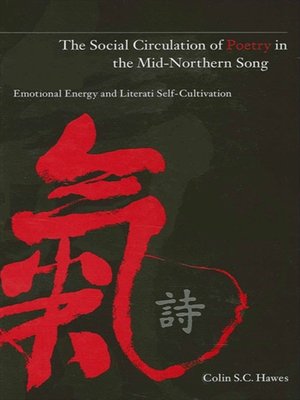The Social Circulation of Poetry in the Mid-Northern Song
ebook ∣ Emotional Energy and Literati Self-Cultivation · SUNY Series in Chinese Philosophy and Culture
By Colin S. C. Hawes

Sign up to save your library
With an OverDrive account, you can save your favorite libraries for at-a-glance information about availability. Find out more about OverDrive accounts.
Find this title in Libby, the library reading app by OverDrive.



Search for a digital library with this title
Title found at these libraries:
| Library Name | Distance |
|---|---|
| Loading... |
Explores how literati of China's mid-Northern Song period developed a social and therapeutic tradition in poetry. Includes a number of translations of the witty poems of the period.
Observing that the vast majority of surviving Northern Song poems are directly addressed to other people, Colin S. C. Hawes explores how literati of China's mid-Northern Song period developed a social and therapeutic tradition in poetry. These social poems, produced in group settings and exchanged with friends and acquaintances, are often lighthearted in tone and full of witty banter and wordplay. Hawes challenges previous scholars' dismissal of these poems as trivial and insignificant because they lacked serious political and moral content by arguing that the central function of poetry at the time was to release pent-up emotions and share them with others in a socially acceptable manner-what Hawes views as circulating emotional energy or qi.
Focusing on the circle of poets around Ouyang Xiu (1007–72 CE) and Mei Yaochen (1002–60 CE), the most influential literary figures of the mid-Northern Song period and the creators of a distinctive Song poetic style, Hawes provides a number of translations of poems of the period. Several major functions of poetic composition are discussed, including poetry as a game, as therapy, as a means of building relationships, and as a way of finding solace in history and in the natural world. Ultimately, the Northern Song attitude toward poetic composition spread throughout Chinese society.







